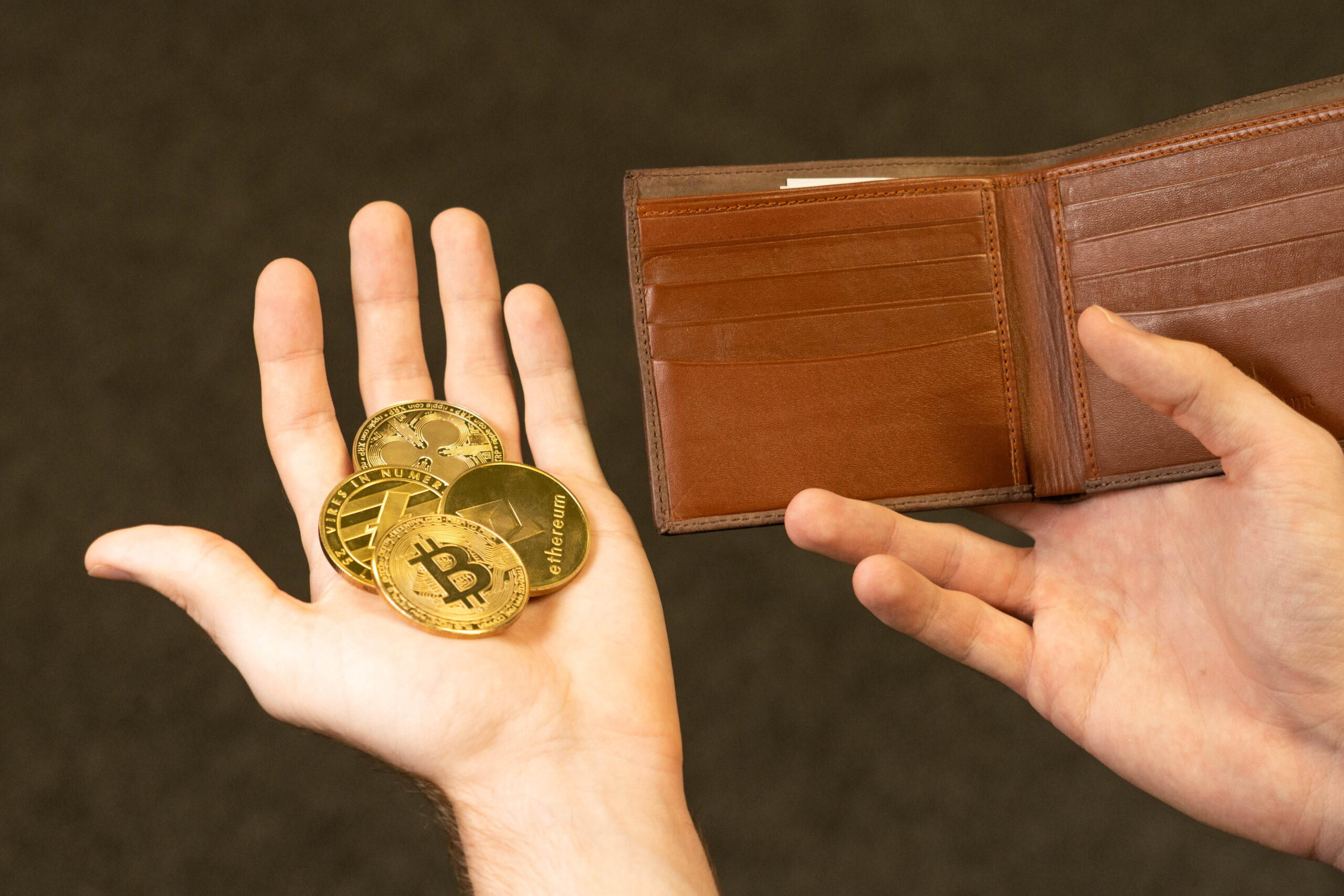Cryptocurrency Wallets: Safeguarding Your Digital Assets – Cryptocurrency wallets play a pivotal role in the world of digital assets, serving as the cornerstone for storing, sending, and receiving cryptocurrencies securely. In this guide, we’ll explore the intricacies of cryptocurrency wallets, their types, functionality, security measures, and how to choose the right one for your needs.
Cryptocurrency Wallets: Safeguarding Your Digital Assets

Introduction to Cryptocurrency Wallets
Cryptocurrency wallets are digital tools that enable users to manage their digital assets. Unlike traditional wallets, which store physical cash and cards, cryptocurrency wallets store private keys that allow access to specific cryptocurrencies on the blockchain.
Types of Cryptocurrency Wallets
Hardware Wallets
Hardware wallets are physical devices designed to store cryptocurrency offline securely. They offer an added layer of security by keeping the private keys offline, away from potential cyber threats.
Software Wallets
Software wallets, also known as digital wallets, are applications or software programs that run on various devices such as desktop computers, laptops, smartphones, or tablets. They provide convenient access to cryptocurrencies but may be vulnerable to online attacks.
Paper Wallets
Paper wallets involve printing out the public and private keys on a physical piece of paper. While considered highly secure as they’re immune to hacking attacks, they require careful handling to prevent loss or damage.
Mobile Wallets
Mobile wallets are smartphone applications that allow users to store and manage their cryptocurrencies on the go. They provide accessibility and convenience, but users must ensure the security of their devices to prevent unauthorized access.
How Cryptocurrency Wallets Work
Cryptocurrency wallets work by generating and storing pairs of cryptographic keys: a public key for receiving funds and a private key for accessing and spending them. When a user initiates a transaction, the wallet creates a digital signature using the private key to validate the transaction and broadcast it to the network.
Importance of Security in Cryptocurrency Wallets
Security is paramount in the world of cryptocurrency wallets due to the irreversible nature of transactions and the prevalence of cyber threats. Implementing robust security measures, such as two-factor authentication, encryption, and multi-signature functionality, is essential to safeguarding funds.
Choosing the Right Cryptocurrency Wallet
Selecting the right cryptocurrency wallet depends on various factors, including security, convenience, and intended usage. Popular options include hardware wallets like Ledger Nano S, software wallets like Exodus, and mobile wallets like Trust Wallet.
Setting Up and Using a Cryptocurrency Wallet
Setting up a cryptocurrency wallet involves creating an account, generating or importing keys, and securing the wallet with backup phrases or passwords. Once set up, users can send and receive cryptocurrencies by entering the recipient’s address and the desired amount.
Backing Up and Recovering Your Wallet
Backing up a cryptocurrency wallet is crucial to prevent the loss of funds in case of device failure or theft. Users should follow the recommended backup procedures provided by the wallet provider and store backup phrases or seed keys securely.
Tips for Secure Cryptocurrency Storage
Ensuring secure cryptocurrency storage involves adopting best practices such as regularly updating software, enabling multi-factor authentication, and avoiding sharing sensitive information online. Additionally, users should beware of phishing attempts and only use reputable wallet providers.
Cryptocurrency Wallets and Regulatory Compliance
As cryptocurrencies gain mainstream adoption, regulatory authorities are imposing stricter compliance measures on wallet providers to prevent illicit activities such as money laundering and terrorist financing. Users should choose wallets that comply with relevant regulations and guidelines.
Future Trends in Cryptocurrency Wallets
The future of cryptocurrency wallets is likely to witness advancements in security features, interoperability with decentralized finance (DeFi) platforms, and integration with emerging technologies like blockchain interoperability protocols and biometric authentication.
Conclusion
Cryptocurrency wallets are essential tools for managing digital assets securely in the decentralized world of cryptocurrencies. By understanding the different types of wallets, their functionalities, and best security practices, users can navigate the cryptocurrency landscape with confidence and peace of mind.
FAQs (Frequently Asked Questions)
- What is the safest type of cryptocurrency wallet?
- Hardware wallets are widely regarded as the safest type of cryptocurrency wallet due to their offline storage and robust security features.
- Can I use the same wallet for multiple cryptocurrencies?
- Some wallets support multiple cryptocurrencies, allowing users to manage different assets within the same interface. However, not all wallets offer this feature, so users should check compatibility before using a wallet.
- What should I do if I lose access to my cryptocurrency wallet?
- If you lose access to your cryptocurrency wallet, you can typically recover it using the backup phrases or seed keys provided during the setup process. It’s essential to keep these backup phrases secure and accessible in case of emergencies.
- Are mobile wallets safe to use?
- Mobile wallets can be secure if users take appropriate security measures such as enabling biometric authentication, using strong passwords, and keeping their devices up to date with the latest security patches.
- How can I protect my cryptocurrency from theft?
- To protect your cryptocurrency from theft, you should use secure wallets, enable two-factor authentication, avoid sharing sensitive information online, and stay vigilant against phishing attempts and malware.




